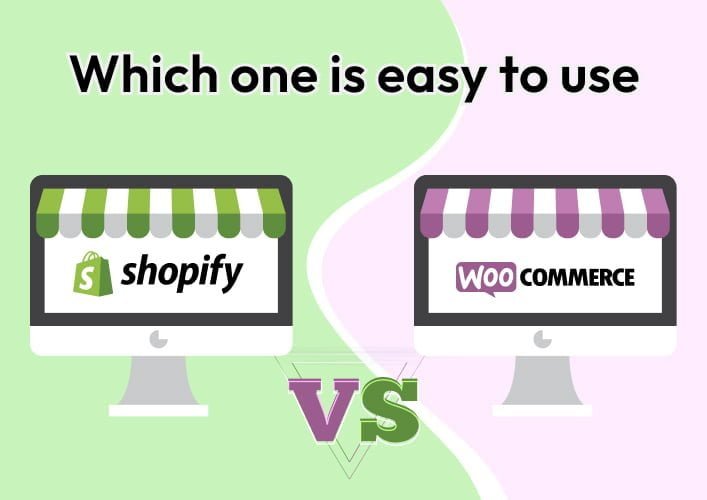WooCommerce Vs Shopify – Which one is easy to use?

Shopify is an e-commerce platform which covers all the technical factors like backups, security and updates. Thus, you don’t have to worry about coding or any other technical problems and can focus on generating sales. Whereas, WooCommerce is a WordPress plugin that requires technical knowledge for backup, website security and updates. Therefore, you need to be a tech expert to manage the eCommerce store if you use WooCommerce. Thus, if you are a non-technical person, Shopify is the best choice for you. Thus Shopify wins in WooCommerce Vs Shopify – Easy to use.
Who has more appealing themes?

The visual appeal of a store is very important. Your online shop theme should be attractive and engaging to achieve maximum sales. If we talk about Shopify, there are more than 70 different both free and paid themes available. And even though you allow for variations, the true number is far over 100. Furthermore, the themes on Shopify are well-designed and presentable, as they are focused on increasing your sales. Prices for premium themes begin at $140. This may seem like a lot but think of it as an asset in your shop rather than a one-time expense. It may be cost-effective if it increases sales. Else, there are several free templates available if you’re on a low budget.
On the other hand, WooCommerce has unlimited theme selection options that are also free and paid. WooCommerce also has a default theme – Storefront. It is mobile-friendly and adapts to any screen size. Furthermore, the design is modern and minimalistic, adding to its appeal. But, in this round of WooCommerce vs Shopify battle, Shopify wins because Shopify’s themes are more professionally designed, and you can even modify them further. But, WooCommerce themes fall short of expectations.
Which can be set up in less time?
Shopify is the way to go if you’re just getting started or don’t have much experience with e-commerce platforms. It is simpler and faster to launch your business on Shopify. Choosing and customizing a theme for your shop’s appearance is as simple as following the on-screen prompts. Whereas, WooCommerce is better suited to those who aren’t desperate to make a ton of sales right away. The reason behind this is that you can build the store from scratch using your technical knowledge. Furthermore, you have all the creative freedom if you want to customize it.
Again in this round of WooCommerce vs Shopify, Shopify wins as it streamlines the process of opening a business by centralizing all of the necessary components, in contrast to WooCommerce.
Who has more apps and plugins?

Adding functionality to your e-commerce site is simple by downloading an app or plugin. Apps for enhancing shipping, search engine optimization, and marketing are all available for both eCommerce platforms. But, the question is which platform has more apps and plugins? WooCommerce is actually based on Plugins. It offers over 50,000 plugins from which you can choose the best ones to build your e-commerce site. But, Shopify offers only 1200+ apps and plugins which are far less compared to WooCommerce. Thus, in this round of WooCommerce vs Shopify, WooCommerce wins.
Who has better SEO features?
Who offers better Marketing tools?

Conclusion
To sum up, the Shopify store can be easily customizable, and quick to launch and the most important thing is that it is easy to use. Whereas WooCommerce can be a perfect choice for those who have the technical knowledge to build an e-commerce site. In case, you are still figuring out to choose the best platform for you, let us help you out. Book a FREE consultation with our Shopify Experts.
FAQs
Is eCommerce and WooCommerce the same?
Is there a cost associated with using WooCommerce?
Which eCommerce platform to use for small businesses?
Is there a better option than WooCommerce?
Does WooCommerce slow down your website?
Ravi Bhojani is the Chief Marketing Officer (CMO) at Alian Software, where he spearheads the company’s marketing strategies and drives its brand presence in the competitive IT services landscape. With over a decade of experience in the technology and marketing sectors, Ravi has consistently demonstrated his ability to blend innovative marketing techniques with deep industry knowledge to deliver outstanding results.